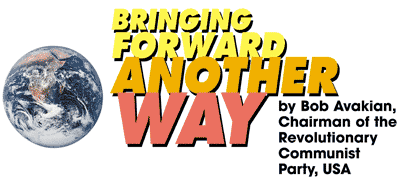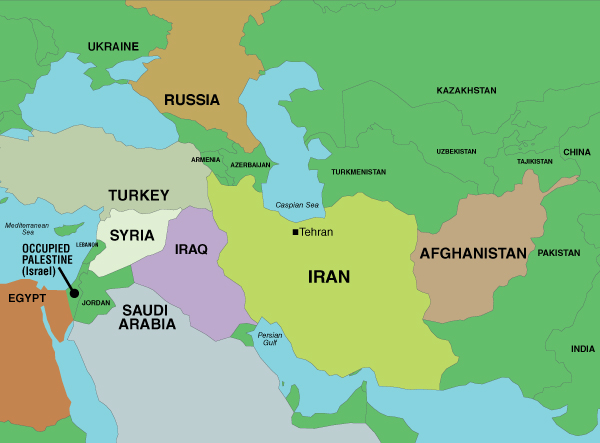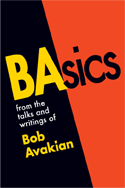Background to the U.S.-Iran Nuclear Deal
Not a Victory for Diplomacy, a Risk-Filled Deal Between Reactionaries
January 18, 2016 | Revolution Newspaper | revcom.us
Last summer, the U.S. and other major powers signed a major nuclear agreement with Iran. Since then, Iran has been working to fulfill its obligations under the deal to dismantle much of its nuclear enrichment program. This past week, Iran completed these steps. As a consequence, on Saturday, January 16, the U.S. and Europe began implementing their part of the deal by releasing some $100 billion in frozen Iranian assets and lifting crippling oil and financial sanctions (the most recent set of those sanctions were imposed in response to Iran’s nuclear program).
As this was taking place, two other issues were resolved that in the past could have become flashpoints. Earlier in the week, two U.S. Navy patrol boats were seized by Iran after they had entered Iranian waters in the Persian Gulf. The boats and their crews were released a day later after intense behind-the-scenes negotiations. Then, on Saturday, as the nuclear deal was being implemented, the U.S. and Iran exchanged prisoners (Iran had been holding five Americans, the U.S. had been holding seven Iranians).
These developments are being hailed by the Obama administration and many in the ruling class (including the New York Times) as a triumph of peace and negotiations over war and death and a “win-win” situation for the U.S. and Iran, as well as the region and the world. In his State of the Union message, Obama praised the Iran deal as an example of a “smarter approach” to U.S. strategy “that uses every element of our national power.” He said that “on issues of global concern, we will mobilize the world to work with us, and make sure other countries pull their own weight...That’s why we built a global coalition, with sanctions and principled diplomacy, to prevent a nuclear-armed Iran. As we speak, Iran has rolled back its nuclear program, shipped out its uranium stockpile, and the world has avoided another war.”
Four critical things to understand:

Bringing Foward Another Way is an edited version of a talk by Bob Avakian, Chairman of the Revolutionary Communist Party, USA, to a group of Party supporters, in 2006. It is must reading for a serious understanding of what the U.S. "war on terror" is really about and how to bring forward a positive force in the world in opposition to both Western imperialism and Islamic Jihad.
The rulers of Iran and the U.S. are not acting to ensure peace and cooperation, they are acting to preserve their interests and role within a world of exploitation and oppression and dog-eat-dog competition between contending interests and powers. In the case of the U.S., this means maintaining domination of the Middle East.
The rulers of the U.S. and Iran came to this agreement to attempt to carve out ways to deal with a web of contradictions they each face in a region that is a hellish mess for the people with no good options for the reactionary powers. Moves the rulers of the U.S. have made in the region have made things worse for them.
These moves are fraught with all kinds of potential risks and dangers, not just for the parties in this agreement but for a whole mix of contending powers and forces.
In part because of those risks, this deal is an element of, and is intensifying, conflicts within both the U.S. and Iranian ruling classes.
And all of this poses a need for people to see through the bullshit, understand the potential explosiveness in this situation, and work to wrench a completely different kind of world out of the madness, including seizing on potential openings for revolution that might open up, including in unpredictable ways.
Interests of the Ruling Classes
Domination of the Middle East has been a linchpin in the position of U.S. imperialism as the dominant imperialist world power since World War 2. Today the rulers of the U.S. are confronting a complex, interwoven, and unpredictable set of challenges, ranging from the rise and moves of global powers like Russia and China, to the emergence of Islamic jihadists with their own reactionary agendas that conflict with those of the U.S. During the George W. Bush regime, there was an attempt by the U.S. rulers to steamroll over these conflicts with massive invasions of Afghanistan and Iraq—invasions that have been a disaster for the U.S. New and more virulent strains of reactionary Jihad have emerged, rival powers have clashed with the U.S., and there have been stresses and strains with allies like Israel and Saudi Arabia.
Within all this, the emergence of the Islamic Republic of Iran has posed a major challenge for the rulers of the U.S. Iran has sponsored, supported, or served as an impetus for reactionary Islamic forces in Iraq, Palestine, Lebanon, Yemen, and other places. Both Iran and Russia back the regime of Bashar al-Assad in Syria.
The U.S. hit at the Islamic Republic of Iran with vicious “sanctions” whose most substantial impact has been increased suffering among the Iranian people, with the goal of isolating and destabilizing the regime. These sanctions and other measures have had an impact and created real problems for the functioning and stability of the Iranian ruling class.
In much of the Middle East and beyond, the U.S. and its ally Saudi Arabia are engaged in proxy conflicts with Iran, even as in some places the U.S. and Iran have had working agreements to combat mutual enemies like ISIS.
With both the rulers of the U.S. and Iran up against daunting challenges, sections of the ruling classes in each country have gotten behind the nuclear deal, with the intent that this will lead to broader cooperation.
Unpredictable Risks for the Rulers

But the U.S.-Iran nuclear deal poses serious dangers for each side. Saudi Arabia, a key U.S. ally, sees the nuclear deal as a major threat to its standing in a volatile region and has made moves, including executing a cleric with some ties to Iran, with the intent of inciting tensions and provoking an Iranian response. Israel—which plays a unique role as an enforcer for the interests of the U.S. empire—sees Iran as a major threat, and tensions between the U.S. and Israel have been intense since the deal was made.
For their part, the rulers of Iran have built their legitimacy and credibility on posing as standing up to “the Great Satan.” And they are embroiled in conflicts with U.S.-backed forces around the region (even as they are cooperating to some extent with the U.S. in Iraq against ISIS). And there are sections of the Iranian ruling class that see potentially fatal dangers in closer ties with the U.S.
For these and other reasons, in both the U.S. and Iran, major forces in each ruling class (represented in the U.S. to a significant degree by the Republicans, and in Iran by the Republican Guards and other “hard line” Islamic forces), there is fierce opposition to the nuclear deal and the associated developments in the relationship between Iran and the U.S.
These conflicts have nothing to do with “war vs. peace” or “diplomacy vs. war,” let alone the interests of the peoples of the region or the world. In particular, the U.S. ruling class is fighting over how to confront the dangers to their empire in the region while not getting so drawn in that other (imperialist) powers gain an advantage elsewhere, nor making things such a mess that the dominant order breaks down and generates new and even more unpredictable contradictions (which is what has happened in Iraq, Libya, and Syria).
Their Interests vs. Humanity
See also: Why We Should NOT Root for Our Own Rulers... And Why It’s Better If They LOSE Their Wars by Larry Everest
On both sides, this new treaty is itself a gamble, and there is absolutely no guarantee that the situation for either the U.S. or Iran will get better, including because it destabilizes previously existing alliances and intensifies others.
There is nothing positive in any of this for the vast majority of humanity. And rather than get behind any faction of the U.S. ruling class, including those represented by Obama, there is a great need for people in this country to break out of identifying with “their own” rulers, and instead to fight to bring forward a whole other kind of world, free of exploitation and oppression. Unpredictable events emerging from this deal could—with a revolutionary movement with a revolutionary communist vanguard at its core—be part of conditions that would make a serious attempt at revolution possible.
The U.S.-Iran nuclear agreement is about trying to preserve the interests of reactionary ruling classes. But as we have begun to explore here, and have analyzed in ongoing coverage of this deal at www.revcom.us, it is a move fraught on both sides, and beyond—with tremendous risks and dangers for them, including the possibility of dramatic setbacks that could open the door to accelerated work towards revolution. Preparing to seize on such an opportunity requires exposing the real nature of this deal, opposing the crimes of “our” ruling class, and preparing the people, preparing the ground, and preparing the vanguard for actual revolution.
Volunteers Needed... for revcom.us and Revolution
If you like this article, subscribe, donate to and sustain Revolution newspaper.

 The interests, objectives, and grand designs of the imperialists are not our interests—they are not the interests of the great majority of people in the U.S. nor of the overwhelming majority of people in the world as a whole. And the difficulties the imperialists have gotten themselves into in pursuit of these interests must be seen, and responded to, not from the point of view of the imperialists and their interests, but from the point of view of the great majority of humanity and the basic and urgent need of humanity for a different and better world, for another way.
The interests, objectives, and grand designs of the imperialists are not our interests—they are not the interests of the great majority of people in the U.S. nor of the overwhelming majority of people in the world as a whole. And the difficulties the imperialists have gotten themselves into in pursuit of these interests must be seen, and responded to, not from the point of view of the imperialists and their interests, but from the point of view of the great majority of humanity and the basic and urgent need of humanity for a different and better world, for another way.





